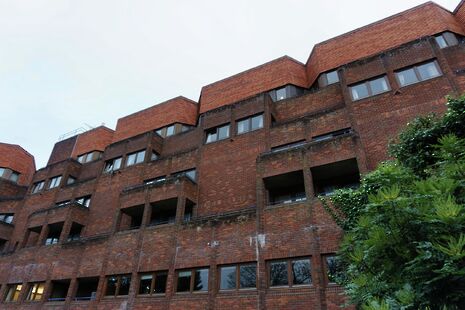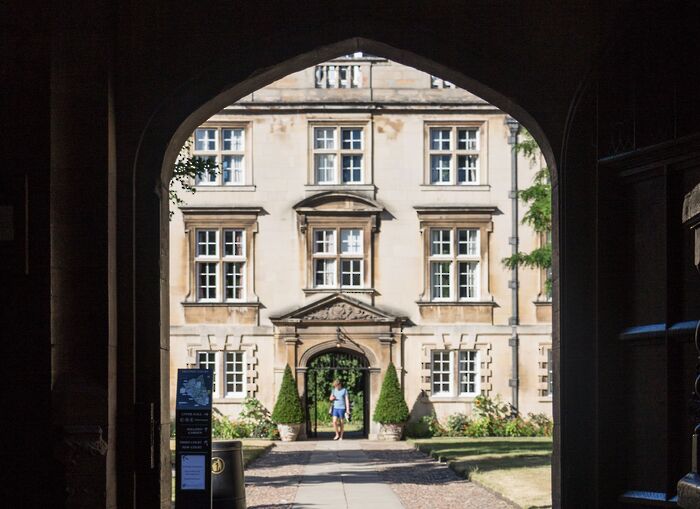Colleges must be pushed to uphold their duty of care to non-academic staff
We must stand with non-academic staff to ensure that their labour is not undervalued by our colleges.

Hoping to press “colleges to reflect on their social responsibility”, student campaigners last week launched a ‘league table’, ranking colleges on the basis of how they treat their lowest paid workers. The worst offender was Robinson College, where nearly 60 percent of non-academic staff are paid below the Living Wage, despite its master receiving an annual salary of £92,951 (more than the head of any other college). With just one college currently accredited by the Living Wage Foundation, the table confirms what many students had already known to be the case: the wages of bedders, caterers, cleaners, and other non-academic staff do not reflect the hard work they do.
The payment of the Living Wage, which is currently set at £9.00 per hour, is the bare minimum any worker needs to cover the cost of living in one of the most expensive cities in the UK. The fact that colleges do not pay their housekeeping and catering staff fairly is irresponsible when we consider Cambridge’s status as the most unequal city in the UK. The average house price in Cambridge is £439,60 and the University continues to invest their wealth in real estate and flashy property developments. Meanwhile, it was revealed earlier this month that the number of homeless people sleeping rough on Cambridge streets grew between 2017 and 2018, despite falling nationwide. We believe that Colleges have a social responsibility to serve the communities in which they are so deeply embedded, and paying staff the living wage is the most basic step towards fulfilling this responsibility. As the UCU ballots lecturers and supervisors on whether to go on strike over universities’ failure to tackle the gender pay gap, the burden of ensuring that our colleges are liveable spaces is also a gendered issue
The working conditions of housekeeping and catering staff should be everyone’s concern. Their work enables students to go about our day-to-day lives with relative ease, helping to support our education. While it’s easy to take empty bins, clean kitchens and waiter service at formal hall for granted, it’s worth remembering that Cambridge is a rarity in terms of the domestic support that students get. Having somebody to clean up after you is a luxury which the vast majority of working adults, let alone students, are unable to enjoy.
“Colleges which spend extortionate amounts on free wine and academic prizes are falling short when it comes to the financial situation of their most essential staff”
What’s more, the work undertaken by non-academic staff can often be a thankless task. One bedder at Emmanuel described having to clean a constantly messy kitchen as “building a machine only to see someone else smash it up.” There can be a huge amount of unpaid emotional labour involved as well, with some bedders comparing their role to that of a ‘surrogate mum’; looking out for the general wellbeing of students and dealing first-hand with welfare issues. Yet while the work of catering and housekeeping staff in colleges is crucial for students and the smooth running of the University’s colleges, their pay runs the risk of undervaluing their labour. Colleges which spend extortionate amounts on free wine and academic prizes are falling short when it comes to the financial situation of their most essential staff. Bursars continue to “invest in the wrong things”, as one bedder put it.
It is important that we encourage colleges to uphold their duty of care to workers. But it is equally important that we do this in a spirit of solidarity, and with a constant recognition of our own relative privilege. This means organising with workers rather than on behalf of them, such as by encouraging and facilitating unionising to help them get their voices heard. It also means not limiting ourselves to pressing colleges to commit to Living Wage accreditation, but also pushing for better working conditions and more secure contracts.
Whether colleges live up to the legacy of the league table’s namesake — Dr Sedley Taylor, who in 1907 offered £500 to Cambridge Borough Council to pay for the dental inspection of every child at a council-funded school — will depend on our ability to stand with staff and collectively demand meaningful change.
 Interviews / You don’t need to peak at Cambridge, says Robin Harding31 December 2025
Interviews / You don’t need to peak at Cambridge, says Robin Harding31 December 2025 News / Unions protest handling of redundancies at Epidemiology Unit30 December 2025
News / Unions protest handling of redundancies at Epidemiology Unit30 December 2025 Comment / What happened to men at Cambridge?31 December 2025
Comment / What happened to men at Cambridge?31 December 2025 Features / ‘Treated like we’re incompetent’: ents officers on college micromanagement30 December 2025
Features / ‘Treated like we’re incompetent’: ents officers on college micromanagement30 December 2025 Theatre / We should be filming ADC productions31 December 2025
Theatre / We should be filming ADC productions31 December 2025








